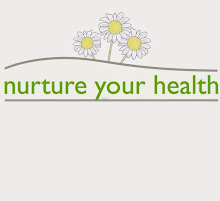 I had a wonderful time presenting at Yoga at the Lake's (http://www.yogaatthelake.ca) A Self Care Day Retreat: Yoga and Nutrition for Stress Relief this past weekend! Studio owner, Janelle Ford, has created such a warm and therapeutic space and there was such good energy and flow with the group of people who attended. Thank you to Janelle for inviting me and for organizing this great event and thank you to everyone who attended for sharing their energy and time and wisdom.
I had a wonderful time presenting at Yoga at the Lake's (http://www.yogaatthelake.ca) A Self Care Day Retreat: Yoga and Nutrition for Stress Relief this past weekend! Studio owner, Janelle Ford, has created such a warm and therapeutic space and there was such good energy and flow with the group of people who attended. Thank you to Janelle for inviting me and for organizing this great event and thank you to everyone who attended for sharing their energy and time and wisdom. Here is some of the info we covered during our Nutrition for Stress Management Session:
 Our HPA (hypothalamic pituitary adrenal) axis manages our stress response in our body, It activates a cascade of hormones that ends with the production of cortisol. Cortisol is our primary stress hormone, it is produced by the adrenals, and it drives our fight or flight response. When our HPA axis is over engaged due to high levels of stress of any type, our cortisol levels become imbalanced, causing us to function in a chronically stressed state. From a nutritional perspective, there are a number of choices we can make to help manage our levels of stress and support balanced cortisol levels.
Our HPA (hypothalamic pituitary adrenal) axis manages our stress response in our body, It activates a cascade of hormones that ends with the production of cortisol. Cortisol is our primary stress hormone, it is produced by the adrenals, and it drives our fight or flight response. When our HPA axis is over engaged due to high levels of stress of any type, our cortisol levels become imbalanced, causing us to function in a chronically stressed state. From a nutritional perspective, there are a number of choices we can make to help manage our levels of stress and support balanced cortisol levels.
Balanced blood sugar - imbalanced blood sugar is a significant stressor for our body and contributes to disrupted cortisol levels, so it is important to maintain healthy blood sugar balance throughout our day. Protein is critical in maintaining balanced blood sugar levels and it is important to ensure we have protein with each meal. Protein sources in our diet include meat, dairy, eggs, legumes, nuts, and seeds. Protein powders can also be helpful as an additional option - yellow pea, hemp, pumpkin, rice, egg white are all good bases to look for.
 Minimizing sugar intake - refined sugar is also a significant stressor for our body and it also contributes to imbalanced blood sugar which again contributes to disrupted cortisol levels. It is important to minimize refined sugar (which includes white and brown sugar and artificial sweeteners) consumption and instead focus on unrefined sweeteners (which includes pure maple syrup, agave, brown rice syrup, cane sugar etc). It is also important to have sweets as a treat (1 - 2 times per week) rather than every day or as a regular part of our diet.
Minimizing sugar intake - refined sugar is also a significant stressor for our body and it also contributes to imbalanced blood sugar which again contributes to disrupted cortisol levels. It is important to minimize refined sugar (which includes white and brown sugar and artificial sweeteners) consumption and instead focus on unrefined sweeteners (which includes pure maple syrup, agave, brown rice syrup, cane sugar etc). It is also important to have sweets as a treat (1 - 2 times per week) rather than every day or as a regular part of our diet.
Minimizing inflammatory foods - chronic inflammation is also a significant stressor for our body and it also contributes to disrupted cortisol levels. Foods high in saturated fats (which includes red meat, dairy products, and eggs), processed foods, sugar, caffeine, and alcohol all can contribute to inflammation in our system. Citrus fruits (especially oranges and grapefruit) and nightshades (which includes all colors of tomatoes, potatoes, peppers, and eggplant) can also contribute to inflammation. It is especially important to limit our intake of these foods if we have any chronic inflammatory condition, like asthma, allergies, eczema, joint pain/arthritis, inflammatory bowel disease.
Minimizing coffee/caffeine - coffee is an adrenal stimulant and a significant stressor for our body and also contributes to disrupted cortisol levels. It is important to either remove coffee or to drink no more than 1 cup of coffee per day. Green tea places less stress on the body and can be a good replacement for some or all of the coffee we drink.
Focusing on a whole foods diet - additionally a diet rich in saturated fats and low in fruits and vegetables has been found to contribute to disrupted cortisol levels. In general, focusing on a whole foods diet will support balanced cortisol levels.



